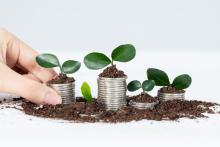This article is featured in Special Feature: Navigating Urban Sustainability.
This article is featured in Special Feature: Navigating Urban Sustainability.
Cities may well be economic powerhouses, but their growth has often come at the expense of nature. Paved landscapes and towering structures typically dominate urban spaces, leaving little room for the natural greenery, and this has made cities particularly vulnerable to the impacts of climate change - from heat stress to extreme weather events like flooding. In response to these challenges, the concept of 'regenerative cities' has emerged as a way to build urban resilience.
Similar to any organisation, owners in family firms can have disagreements that stem from different views, personalities, interests and priorities. But unlike non-family firms, such disagreements in family firms can spillover from the business into the personal domain and vice versa.
Despite the growing urgency to bridge the gap between climate action goals and reality, much still has to be done. According to the UN Environment Programme Emissions Gap Report, emissions from 2023 put the world on a path to a temperature rise of around 2.7°C by 2100, almost twice the Paris Agreement goal of 1.5°C at the end of the century.
Asian cities like Singapore, Bangkok, Manila and Ho Chi Minh face very real risks of huge economic losses should their adaptation measures be inadequate. Singapore faces up to 20.2% gross domestic product (GDP) loss in a two-degree warmer scenario, a warning of how adversely megacities will be affected.
A lower middle-class family is tasked with the upkeep of a new garden and street planting installation touted to provide environmental benefits to their city and local community. Instead of relaxing in their downtime, they spend hours on manual labour; weeding, watering and tending to the city’s much-celebrated “green infrastructure.” This was the case with a community in Los Angeles (LA), USA, found Sayd Randle, Assistant Professor of Urban Studies, in her paper “Ecosystem duties, green infrastructure, and environmental injustice in Los Angeles”.






